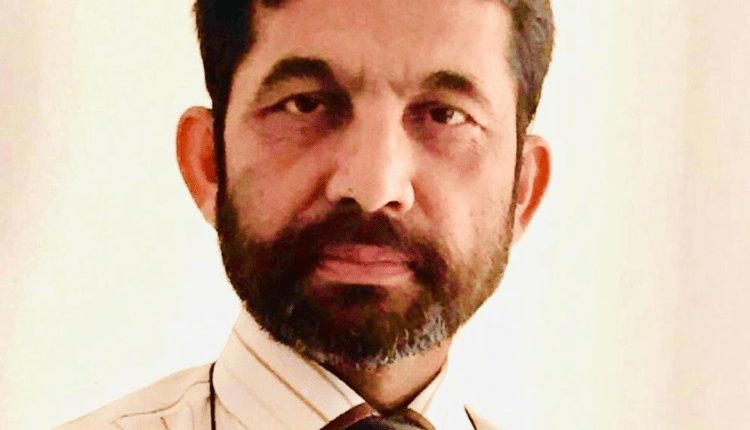By : Prof Mulazim Hussain Bukhari
The 2022 floods have impacted 33 million people while killing over 1,700. More than two million houses have been damaged, and Crops on over 3.5 million acres of land have been lost, with farmlands, orchards, bridges, and road networks destroyed. As per details 350,000 people have been diagnosed with malaria and 700,000 with diarrhea in 32 districts of Sindh. According to World Bank report, the total estimation of losses is over USD40 billion.
Azad Jammu and Kashmir Medical College is among those helping the affected people as its rehabilitation efforts in construction sector is about to enter its Phase-II that include building of about 25 well-materialized houses. The cost of each house is around Rs. 300,000-350,000 with all basic facilities for a single family.
The efforts of Azad Jammu and Kashmir Medical College team in reconstruction task in the flood-affected areas of Sindh is touching down completion of the first phase and is about to enter the second phase in which about twenty-five houses will be constructed on strong grounds.
Dr. Sheikh Muhammad Khan, Dr. Mashuq Dasti, Alam Sheikh and Syed Riaz Hussain Naqvi on the local committee of Khairpur Nathan Shah and Mahar of Dadu District; Khairpur is overseeing the work of Azad Jammu Kashmir Medical College in rebuilding Nathan Shah’s village Bahadur Khan which was also destroyed in the current floods.
The situation arising as a result of the flood is very dire. According to a report released by the United Nations, only 15 to 20 percent of the victims have received aid so far, which means the remaining 80 percent of the victims are helpless. On the other hand, there is no news about the victims in national media. Dozens of deaths are happening due to disease and hunger, but only politics is being shown on screens, all politics revolves around the chair. According to the report issued jointly by the Ministry of Planning and Development, Asian Development Bank, European Union, World Bank and the United Nations, Pakistan was impacted by the severest monsoon in a decade. The rains have impacted 33 million people, and more than 1,700 people have died. More than two million houses have been damaged, and over 3.5 million acres of crops have been lost, with farmlands, orchards, bridges, and road networks destroyed. The damage caused by the flood is estimated at 14.9 billion dollars, while the cost of rehabilitation and reconstruction is 16.3 billion dollars. A significant amount of excess will be required. According to a source, 350,000 people have been diagnosed with malaria and 700,000 with diarrhea in 32 districts of Sindh.
Because the basic health system has been affected, the victims have no access to clean water to drink, let alone medicine. According to the National Nutrition Survey, 16 lakh children are malnourished. According to UNFPA, 16 lakh women are undergoing childbirth in flood-affected areas. Due to public health problems and increasing poverty, the lives of mothers and children are in serious danger. The victims have neither a roof to stay nor anything to eat. In the first few weeks, some of the aid reached the people, but now they seem to have been forgotten. The World Food Program is not collecting enough resources to provide the food needed in the affected areas.
Rehabilitation of the flood-affected areas is very essential. Medical camps and rehabilitation works should be started in these areas on the pattern of Azad Jammu and Kashmir Medical: And houses should be constructed on the pattern of Kashmir Houses in the backward areas of Sindh, which is not impossible.
The government must continue to respond to urgent humanitarian needs, while also restoring and rehabilitating existing health, water, sanitation and education facilities for families returning home. But much more support is needed to ensure we can reach all families displaced by floods and help them overcome this climate disaster. In addition to curative medical treatments, planning healthcare for flood victims also concentrate on preventative, and rehabilitative health services.
The mental stress and anxiety related issues in such affected areas need serious attention, therefore, medical treatment for flood victims must include mental health support program in rehabilitation. Conductance of surveillance should be ensured for early identification and damping the outbreaks of infectious diseases. Also, the mutual understanding and collaboration of various governments, non-governmental organizations as well as international organizations are needed to help the sufferer and to face effectively all the challenges.
The writer is the Principal of Azad Jammu and Kashmir Medical College Muzaffarabad.
Published in Daily country News, January 5th, 2023.

